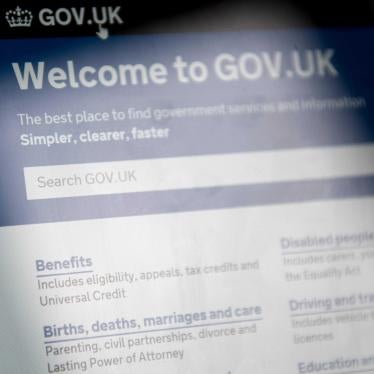The systems of surveillance that Edward Snowden revealed in both the UK and US depend on law for their justification, and are facing legal challenges in both countries’ legislatures. This might give the impression that, whatever the merits of these controversies, they will be sorted out through well-established, neutral principles of law. But a case in the UK has raised concerns about whether the impartial protections of the legal system are themselves being undermined.
This February, during a legal challenge at the Investigatory Powers Tribunal (IPT), the government admitted that it has been monitoring confidential conversations between lawyers and their clients for the past five years. These communications are protected by a central tenet of UK and US jurisprudence, the principle of legal privilege (or “legal professional privilege”).
Legal privilege creates the space for anybody to consult an attorney secure in knowing they can speak in confidence and get frank guidance. It also prevents courts from accessing oral and written communication between attorney and client. The UK’s highest court has described legal professional privilege as “a fundamental condition on which the administration of justice as a whole rests.” This trusted relationship is generally beneficial for society: long ago the UK decided its value outweighed occasionally uncovering a plot or crime someone might confide to a lawyer. It has been affirmed by the European Court of Human Rights as a protected right under the European Convention on Human Rights (ECHR).
There are several exceedingly narrow exceptions, most notably if the client attempts to further or cover up a crime or fraud, in which case the ECHR requires that the system to intercept communications is clearly set out and contains adequate guarantees against abuse. The UK’s 2000 law governing surveillance, the Regulation of Investigatory Powers Act (RIPA), was found to meet these requirements in the 2010 case of Kennedy v. the United Kingdom. However, RIPA does not provide any special protection for legally privileged communications, as recognized in the supplemental provisions of the Interception of Communications Code of Practice (“the Code”).
In early February, the Home Office published an updated draft of the Code, with new rules on the warranted interception of communications subject to legal privilege—including provisions to ensure such material is not made available to lawyers involved in related legal proceedings. Greater detail on safeguards surrounding the handling of this most sensitive of communications is welcome. But questions remain about the application and operation of the Code in the wake of the government’s disclosure that its surveillance regime had failed to comply with the ECHR in the five years since Kennedy v. the United Kingdom.
The UK government contends that its illegal monitoring of privileged communications “does not mean that there was any deliberate wrongdoing” by the intelligence agencies, nor that the activities have “prejudiced… any civil or criminal proceedings.” But the practice it has disclosed harms the ability of attorney and client to build trust and develop an effective legal strategy, putting at risk the right to a fair trial. It also has the potential to frustrate future efforts to hold the government to account for human rights abuse.
Although advances in technology and the new privacy issues they create have outpaced the policies designed to regulate them, time-honored legal safeguards should not be flouted. Whatever the outcome of the IPT ruling, the UK government should recognise that the legal privilege is fundamental to the integrity of the rule of law. Any exceptions must be clearly and narrowly defined and subject to judicial approval, without bias or the possibility of creating unfair advantage.









